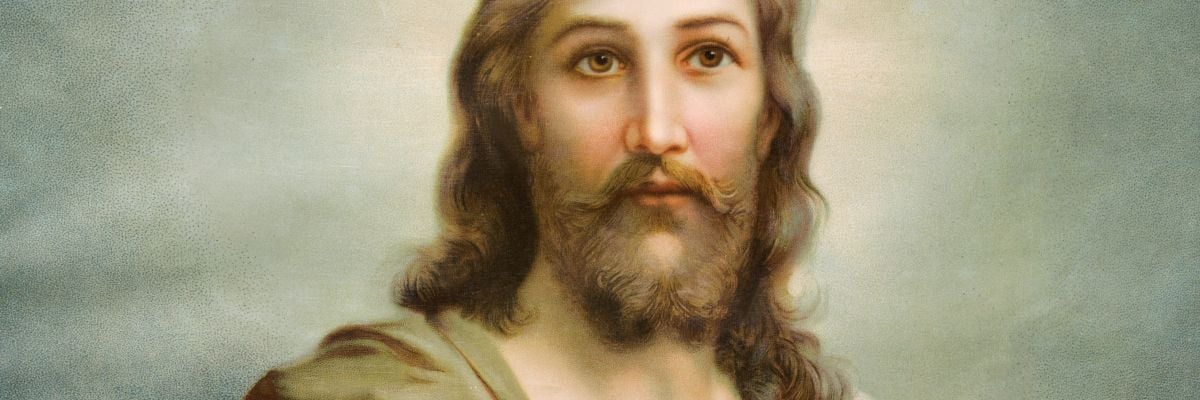Did the Incarnation Cause God to Change?
But God can't change . . . so all of Christianity is refuted. That's how the argument goes, anyway, but it's based on a misunderstanding.

www.catholic.com
An excellent question that we get here at Catholic Answers maybe five or six times a year is this:
Because this question is connected to Mary’s title
Theotokos (“God-bearer), I address it at length in my book,
Behold Your Mother.
(Check it out!) But this is such a good and important question that it bears treating over and over again.
The short answer is no, God
cannot change (see Mal. 3:6), so he did not change in the Incarnation. In order to understand how this is so, we have to define a very important term:
the hypostatic union. At the Incarnation 2,000 years ago, the second person of the Blessed Trinity acquired a human nature; ever since then, the second person of the Blessed Trinity possesses two natures, one divine, and one human, subsisting within the one divine person. (End of definition.)
Please take note that there is no “mixing” of natures here. The divine and human natures of Christ are absolutely distinct. Yet they are not divided or separated, either: they are “joined” in
the hypostatic union—a created union “within” the one divine
hypostasis (person) of Christ.
What do we mean by this union existing “within” the one divine person? That seems to imply a change in God, right?
St. Thomas Aquinas explains:
When we speak of
the hypostatic union of the divine and human natures of Christ in the one divine person, we have to qualify what we mean by the union being “in the
person” of Christ. St. Thomas explains that since the hypostatic union is a “created union,” it cannot be “in God”:
And so when the councils of Ephesus and Chalcedon speak of the hypostatic union being “in the person of Christ,” it is so inasmuch as the human nature assumed by Christ
now has as its subject the divine person of Christ. As Aquinas says, it is “not really in God, except in our way of thinking”—that is, because the human nature has as its subject a divine person.
“But wait a minute,” someone might say. “The second person of the Blessed Trinity
used to be just God, but at the Incarnation he became a God/man mixture. That’s a change!”
It’s true that, at the Incarnation, the second person of the Blessed Trinity
added a human nature that he did not have before, but
he (the divine person) did not change
in his divine essence. The only real change took place in his human nature, which received infinite dignity in and through the hypostatic union but God did not change in the process. But because of the hypostatic union, when one refers to the human nature of Christ,
the subject is the divine person. This is why we can worship the man, Jesus Christ. This is why we can affirm that God, the second person of the Blessed Trinity, was born, suffered, and died. The divine nature cannot die, but a divine person
did, because of the hypostatic union.
Likewise, we also worship the whole Christ, not part of him. Mary gave birth to the whole Christ, not to one of his natures. When we speak of Jesus we speak of his divine person, to which everything fully human and divine is attributed.
This is a great mystery, and we should not shy away from admitting it. 1 Timothy 3:16 says, “Great is the mystery of godliness. He [God] was manifest in the flesh, seen of angels preached on unto the gentiles and received up into glory.” The truth of the hypostatic union is beyond our ability to comprehend fully, but there is nothing about it that is
contrary to reason.
But to posit a change in one of the three divine persons of the Blessed Trinity is clearly contrary to reason. And that is no mystery at all. The Council of Ephesus (431) affirmed by the later Council of Chalcedon (451), says quite succinctly and accurately:
Even the heretical Nestorians, who effectively saw
two persons in Christ, did not make so obvious a mistake as to claim there was “change” in God.
Ultimately, the error in those who think that God changed in the Incarnation is rooted in a lack of understanding of the difference between
person (who someone is) and
nature (what someone or something is). In Jesus’ case, the “who” does not necessarily change by adding another “what.” And neither is there a change to the other “what”—the divine nature. The only change we can speak about is the radical change to human nature that occurs by the grace of the hypostatic union wherein the human nature of Christ is lifted up, as it were, into the divine person, receiving infinite dignity as a result. Thus, “the man, Jesus Christ” (1 Tim. 2:5) has not merely become a “[partaker] of the divine nature” (2 Peter 1:4) as we Christians are. The “man” Jesus Christ
is God because of the hypostatic union.
And isn’t this exactly what we see in Sacred Scripture? Examine Colossians 1:15-22 and you will see the “he,” or the one
person of Christ, being referred to as both “the creator” of all things (as God)
and as having suffered and died on the cross for our salvation (as man):
He is both God the creator and the man who died on the cross. How? Because any phenomenon of which we speak, finding its source, location, or both
in Christ, must ultimately be attributed to the one divine person. This is why we can say with confidence that God became man yet God does not change.


